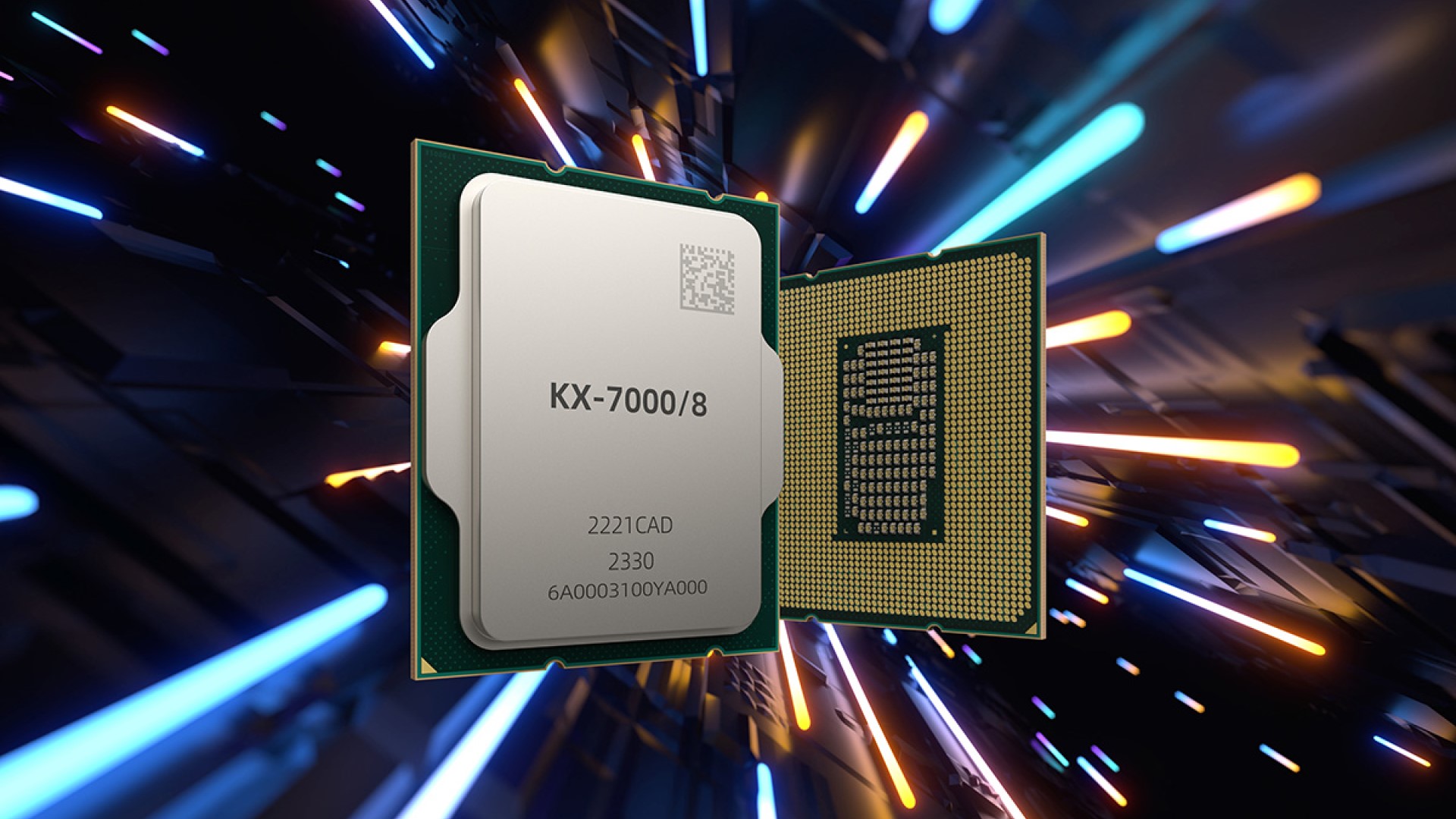Chinese CPU maker Zhaoxin rolls out DeepSeek support to all processors — entire product lineup now runs DeepSeek LLMs natively
Zhaoxin claims its 64-core server CPUs can run DeepSeek's 671B model without the help of GPUs.

DeepSeek's rollout into the Chinese consumer market continues, as Zhaoxin has announced its adoption of the DeepSeek-R1 LLM across its hardware lineup. Zhaoxin, one of the few Chinese companies licensed to work with the x86 instruction set, boasts that its processors and OEM systems can natively run the 1.5B, 7B, 14B, 32B, 70B, and 671B parameter models released by DeepSeek so far.
Zhaoxin's press release mainly highlights two chips: its KaiXian KX-7000/8 consumer processor and Kaisheng KH-40000/32 64-core server processor. The KX-7000/8 is an 8-core model running at 3.7GHz with 32MB of L3 cache. Zhaoxin advertises that the chip can natively run DeepSeek-R1-7 B when paired with an unnamed Chinese GPU. Integrations with word processors and the VSCode interface allow AI-assisted writing, spreadsheets, and programming.
This unnamed AI accelerator card is undoubtedly a major contributor to the AI performance touted here. When recently tested against the 7-year-old Intel i3-8100 quad-core chip, the KX-7000/8 could win out in multi-core benchmarks but was handily beaten in single-core workloads, putting up CPU-Z single-core results of 335.9 points vs. the i3-8100's 422.2.
Zhaoxin's enterprise-grade KH-40000 family is also featured heavily, with the KH-40000/16 and /32 chips being tested for their AI performance. As part of an OEM AI workstation, the KH-40000/16 successfully deployed up to the 32B model of Deepseek-R1. The Lianhe Donghai XRS302 server workstation, a fully Chinese-made server, was fitted with four Chinese AI accelerator add-in cards to supplement the 16-core, 2.2GHz server processor. As the Donghai XRS302 does not ship complete, we do not know more details, such as the GPUs or RAM used for these tests.
Finally, Zhaoxin's flagship KH-40000/32, a 32-core chip designed for use in dual-CPU servers, was able to deploy Deepseek's 70B model and run its 671B model without a GPU (translation loses some nuance; it seems the 70B was a more comfortable deployment, while the 671B model just managed to run).
Zhaoxin's claims above are difficult to judge accurately, thanks to the language barrier and the company's incredibly vague parameters for LLM performance beyond screenshots. Whether DeepSeek-R1 running on Zhaoxin CPUs speaks more to the success of DeepSeek's software or Zhaoxin hardware remains to be seen.
DeepSeek continues to be a breakout moment for the Chinese tech market, with more hardware companies rushing to integrate it with their products. Even smart TVs recently got DeepSeek integration. After taking Nvidia and OpenAI stock to the cleaners, DeepSeek, and the Chinese hardware field will likely try to keep up the momentum in the coming weeks to prove the capability of the Chinese tech sector's capability.
Stay On the Cutting Edge: Get the Tom's Hardware Newsletter
Get Tom's Hardware's best news and in-depth reviews, straight to your inbox.

Dallin Grimm is a contributing writer for Tom's Hardware. He has been building and breaking computers since 2017, serving as the resident youngster at Tom's. From APUs to RGB, Dallin has a handle on all the latest tech news.